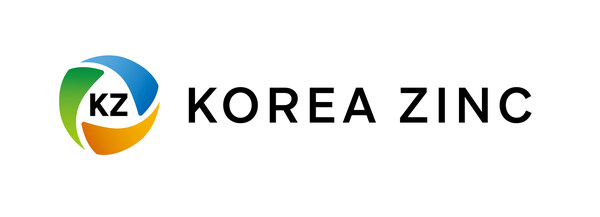 |
SEOUL, South Korea, April 16, 2024 /PRNewswire/ -- Korea Zinc announced today that the company has decided not to renew the sulfuric acid consignment contract with Young Poong, which is scheduled to expire on June 30, 2024. Korea Zinc's Onsan Refinery operates 20 sulfuric acid tanks and handled 1.6 million tonnes of sulfuric acid annually, including over 400,000 tonnes of sulfuric acid consigned by Young Poong's Seokpo Smelter in 2023.
Sulfuric acid, for which the consignment contract is set to terminate, is a byproduct of zinc smelting and a highly toxic, hazardous chemical substance. That is, handling sulfuric acid requires rigorous management to prevent safety accidents and is accompanied by risks and liabilities in accordance with the Chemicals Control Act. Accordingly, the consignment has added to a socioeconomic burden that Korea Zinc has been facing with its in-house generated sulfuric acid, and it is also costly to turn sulfuric acid into industrial-grade sulfuric compounds.
The decision to discontinue the consignment contract came as Korea Zinc decommissioned some of its aging sulfuric acid handling facilities, needed to make additional investments to upgrade the facilities, and had a capacity shortage due to a steady increase in the amount of in-house generated sulfuric acid. Notably, Korea Zinc is expected to generate additional 185,000 tonnes of sulfuric acid annually, once its subsidiary KEMCO starts its new all-in-one nickel refinery in 2026.
Moreover, the sulfuric acid consignment by Young Poong's Seokpo Smelter has dwindled to 190,000 tonnes per year due to production disruption and cuts. The amount is small enough to be transported to East Sea Port near Seokpo Smelter.
Young Poong has transported sulfuric acid over 300km of distance to Korea Zinc's Onsan Refinery using the Onsan Train Line, instead of East Sea Port, which is only 65km away, passing the risks and the burden of managing hazardous substances on to Korea Zinc.
Notably, as large-scale apartment complexes are being created along the Onsan Line, there is a growing call from civic groups and environmental organizations to close down the Onsan Line, and the backlash from the local community is causing fallout on Korea Zinc.
That said, in the spirit of the longstanding partnership, Korea Zinc gave prior notice about its intention to terminate the consignment contract. Korea Zinc is committed to collaborating with Young Poong, offering a sufficient grace period to help Young Poong transport through East Sea Port and build its own sulfuric acid handling facilities.
Earlier, Korea Zinc announced that the company ended its joint sourcing and marketing agreement with Young Poong, which enabled them to enter joint contracts when procuring key raw materials such as zinc and selling products. The expiration of the contract marks an end to these joint operations. Accordingly, the two companies are going to negotiate and enter contracts separately with vendors and customers.
Recently, the non-ferrous metals market has come under pressure, due to difficulties in sourcing raw materials and selling products amid macroeconomic headwinds. Korea Zinc's latest move is to improve earnings and save costs at a time when internal and external uncertainties and unfavorable operating environments make it increasingly challenging to do business.
"It is the path forward to enhance Korea Zinc's enterprise value and earnings performance" said Korea Zinc. "Korea Zinc will continue to do its best to bring greater shareholders' value."